Dan McTeague
New Carbon Tax, Same Price Tags
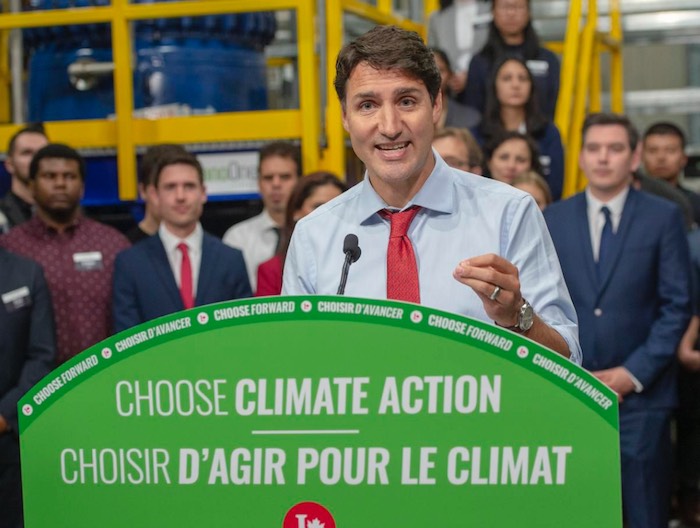

We must keep energy affordable for Canadian families. I have been saying this for years. But despite this simple message, some politicians still don’t get it.
Justin Trudeau’s Liberal government keeps insisting on one new expensive energy policy after another, and all of these efforts are designed to make energy unaffordable for Canadians.
One of Trudeau’s latest initiatives is his “Second Carbon Tax,” also known as the “Clean Fuel Standard,” or “CFS.”
We’ve dubbed the Clean Fuel Standard a Second Carbon Tax because that is exactly what it is – simply another tax grab that will only make life more unaffordable for Canadians.
Trudeau’s friends in the media barely mention this new tax, so it falls to Canadians for Affordable Energy and a few like-minded people to alert Canadians to this latest assault on your pocketbook.
To this end, CAE is publishing a new report authored by economist Ross McKitrick on the Clean Fuel Standard a.k.a the ‘Second Carbon Tax’. You may recall I wrote about the Clean Fuel Standard a few years ago when it was first proposed.
The Clean Fuel Standard is a tax that aims to reduce the carbon intensity of liquid fuels used in transportation (gasoline, diesel) by 15% by 2030. This will be done by blending ethanol into traditional liquid fuels, and by the use of carbon credits which will be available to those switching to electric vehicles or increasing EV infrastructure.
The report released by LFX Associates ‘Economic Analysis of the 2022 Federal Clean Fuels Standard’ shows us just how expensive and ineffective this policy will be.
The conservative estimate is an increase of 2.2-6.5% per household. In real money terms this will an extra tax of $1,277 a year per worker.
In provinces that rely more heavily on liquid fuel sources such as oil – like Newfoundland and New Brunswick- these prices will be higher.
What a time to increase energy bills for families.
This new carbon tax is being released at a time of soaring household costs. Grocery prices have skyrocketed. Families are struggling to afford the basic necessities for their home. Now the government is going to make it even more expensive.
And will this policy be effective? Will it reduce emissions and bring Canada into a green renewable future?
No. No, it will not.
While locally (in Canada) emissions may go down, there will be no global reduction in greenhouse gas (GHG) emissions. That is because the ethanol used to dilute our liquid fuels will most likely be imported from the United States. US based ethanol has a higher lifetime carbon intensity than gasoline. To extract, store it, ship it, etc. produces more emissions than what would be produced by using gasoline to fill our cars.
This new “Second Carbon Tax” will not reduce emissions. But it will allow Justin Trudeau to state that he has reduced Canada’s carbon intensity footprint. Unfortunately, any such reduction resulting from this tax will be achieved on the backs of working Canadians.
This policy will not help Canadians lead better lives. But it will make it more expensive to drive your car to the grocery store, to hockey practices, to medical appointments, and to work.
And, contrary to the government’s claim that there will be virtually no effect on GDP, the impact of this new tax on the Canadian economy will be significant. By 2030 the Canadian GDP will be about 1.3 percent lower than without the CFS. In other words, we can expect that Trudeau’s new CFS carbon tax will actually harm the Canadian economy. Unemployment, higher cost of living and further diversion of investments from Canada will put downward pressure on government revenue. This will lead to an increase in the consolidated government deficit in every year of the policy’s implementation. The extra government debt accumulated by 2040 because of the Clean Fuel Standard is estimated to reach as high as $95.2 billion.
You may feel like I am starting to sound like a broken record. Believe me, I feel like that too. My message is always consistent: bad government policies mean prices go up for Canadian families, and Canadian families should not be punished for the sake of our government’s phony global image as climate heroes.
But that is because policies like the Clean Fuel Standard will have real, serious, even detrimental effects for Canadian families.
A new tax on energy? A second carbon tax, on top of the already disastrous and ever-increasing carbon tax that Trudeau insists on forcing Canadians to pay? Yep. Because, well, because it’s 2022.
Automotive
Repeal the EV mandate, Mr. Carney

By Dan McTeague
Earlier this month, Donald Trump fulfilled a major campaign promise and struck a blow against environmentalist governance in Canada, all in one fell swoop.
He did this by signing a congressional resolution revoking a waiver granted to California by the Biden Administration that enabled the state to set automotive emissions standards significantly stricter than the national standard. So strict, in fact, that in practice only electric vehicles (EVs) could realistically meet them.
This waiver functioned as a backdoor EV mandate, not just in California, but for all of the United States. That’s because automakers don’t want to be locked out of the most populous state in the union but are also disinclined to build one set of cars for California and another for the rest of the country. Their only option would be to increase their production of EVs, to the exclusion of gas-and-diesel internal combustion engine (ICE) vehicles.
Trump has argued, both during his 2024 campaign and since, that the waiver enabled far-left California to saddle the rest of the country with environmental policies it had never voted for and couldn’t repeal. That view helped him win back the White House.
But what does this have to do with Canada? Donald Trump has no power over our own EV mandate. The law of the land in Canada, though it was barely discussed in this spring’s federal election, beyond a last-minute pledge from Pierre Poilievre to reverse it, is still that by 2035, 100 per cent of new light-duty vehicles sold in Canada (including passenger cars, pickup trucks, and SUVs) must be electric.
It doesn’t sound like Mark Carney’s Liberals have any intention of changing course from this Trudeau-era policy — even though new EVs sold in Canada have been falling as a share of overall purchases. To stay on track for 2035, the mandate stipulates, 20 per cent of new cars sold in Canada next year must be EVs. Last year just 13.7 per cent were. And, as Tristin Hopper noted recently, “these sales are disproportionately concentrated in a single province … Of the 81,205 zero-emission vehicles sold in Canada in the last quarter of 2024, 49,357 were sold in Quebec.”
That doesn’t bode well for a national mandate. And Trump’s move further complicates the Liberals’ EV mandate, which has always been presented as an investment opportunity as well as a chance to reduce global carbon emissions. Our federal and provincial governments (particularly Ontario and Quebec) have bet very big on EVs dominating the future. Last year, the Parliamentary Budget Officer estimated that public investment in EVs exceeded $52 billion. Much of that money has gone towards subsidizing the manufacture of EVs in Canada.
Except there just aren’t enough Canadian consumers to justify that expense. The scheme has always hinged on there being a robust EV market south of the border. The Canadian Vehicle Manufacturers Association reminds us that “vehicles are the second largest Canadian export by value, at $51 billion in 2023, of which 93 per cent was exported to the U.S.”
The assumption was that existing avenues of trade would remain essentially unchanged. Even leaving aside concerns about what our future trade relationship with the United States will be, the end of America’s backdoor mandate — and with it, any reason to believe there will be a serious market for EVs in the U.S. — exposes our current EV policies as a bum deal.
Of course, there was never a strong case for attempting to turn Canada into a global EV superpower. There’s a reason Canadian consumers remain skeptical of them. EV batteries don’t perform well in the frigid temperatures for which our country is famous. In cold weather, they charge slowly and then struggle to hold the charge.
Our already-stressed electrical grid isn’t ready for the extra demand that would come with widespread EV adoption, especially considering the Liberals’ desire to progressively decarbonize the grid. And we have nothing like the infrastructure we would need to support this transition.
These roadblocks have now become so obvious that even the automakers, the main beneficiaries of both taxpayer-funded largesse and the mandates themselves, have started saying so. “The fact is these EV sales mandates were never achievable,” read a recent statement by the Alliance for Automotive Innovation, which represents Toyota, GM, Volkswagen, and Stellantis. Ford Canada CEO Bev Goodman has described the mandate as unrealistic and called for its repeal. Kristian Aquilina, president of GM Canada, has said the same.
Whether they realize it or not, our political leaders will have to face up to this reality, and sooner rather than later. Their best option is also the most straightforward one. There’s no reason for us to keep throwing good money after bad money, nor to force an unwanted product on Canadian consumers.
You can do it, Mr. Carney. Repeal the EV mandate.
Automotive
Carney’s exercise in stupidity
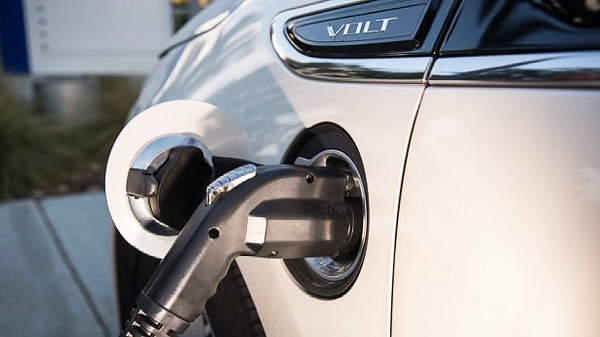
 By Dan McTeague
By Dan McTeague
This past Tuesday, the Conservative Party put forward a motion in parliament calling on the Liberal government to immediately end their ban on gas-and-diesel driven Internal Combustion Engine (ICE) vehicles, which will take full effect in 2035.
Arguing for the motion, Melissa Lantsman rightly said, “Nobody is denying people the choice to drive an electric car. There is nothing wrong with that. What is wrong is the government mandating that everybody drive an electric car.”
Unfortunately for all of us, MPs voted 194-141 to keep the EV mandate in place.
The vote itself is unsurprising, since, despite Mark Carney’s campaign-long insistence that he shouldn’t have to answer for the policies of his predecessor, he was a Trudeau advisor and confidant for years, and there is virtually no daylight between their governments on any major issue.
Still, this will be the first time that many Canadians even hear about the ICE ban, the implementation of which begins in earnest on January 1st, just about six months from now. At that time, the government will mandate that 20 per cent of all new light-duty vehicles (passenger cars, SUVs, and pickups) must be classified as “zero-emisson,” or Electric Vehicles (EVs).
How, you might ask, does the government expect automakers to ensure that, come January, one-out-of-five car-buying Canadians will choose to purchase an Electric Vehicle? Especially since consumers have been skeptical of EVs thus far, with just 13.7 per cent sold in Canada last year.
(And, as Tristin Hopper recently pointed out, even that number is misleading. “These sales are disproportionately concentrated in a single province…. Of the 81,205 zero-emission vehicles sold in Canada in the last quarter of 2024, 49,357 were sold in Quebec.” That’s 60 per cent!)
Well, the answer to that question is that manufacturers will be required to submit annual reports to the Ministry of Environment and Climate Change, detailing their compliance with the government’s EV targets. If they don’t meet their EV sales quota, they will face significant financial penalties.
To avoid those penalties, automakers will be forced into one option. As Conservative MP Cheryl Gallant explained, “How will carmakers ensure they sell enough electric vehicles? They will do it by drastically raising the price of internal combustion vehicles!”
That’s right, their only option will be to start increasing the price of the cars and trucks Canadians want to buy, in order to force us to buy ones we don’t want to buy.
This is madness.
To reiterate what I’ve said over and over and over again, the Liberals’ EV mandate is bad policy.
It forces Canadians to buy a product that is expensive. EVs cost more than ICE vehicles, even factoring in the government subsidies on which the EV industry has perpetually relied. Ottawa’s $5,000-per-EV rebate program ran out of money six months ago and was discontinued, at which time EV numbers really began to fall off, which is why the Liberals stated desire to toss more tax dollars at bringing it back.
And it forces us to buy a product that is poorly suited for Canada. EV batteries are bad at holding a charge in the cold, and are just generally less reliable.
We don’t have the infrastructure to support this EV transition. Our electrical grid is already strained, and doesn’t have the capacity to support millions of EVs being plugged in nightly, especially as the Trudeau/Carney Liberals progressively push us to replace reliable energy sources, like oil and natural gas, with unreliable “renewables.”
On top of all that, where do they think we’re going to get all of these glorified golf carts they’re trying to force on the Canadian public? Even with the estimated $52 billion that the Trudeau and Ford governments have thrown at the industry to subsidize the manufacture of EVs in Canada, we don’t make anywhere near enough EVs to support a full-transition.
That’s likely why left-leaning outlets have started calling on Mark Carney to lift the tariff on Chinese EVs. Taking advantage of EV mandates might be smart business for China — flood the markets of gullible nations with EVs which are cheaper than what domestic manufacturers can produce, and then jack up the price once the mandates are fully implemented and they have no competition from either traditional vehicles or other EV companies.
But us going along with that scheme is the definition of bad business. Which is probably why our automakers have started to admit that the mandates are unrealistic and call for them to be repealed.
Tuesday’s vote went the wrong way for Canadians, but kudos to the Conservatives for bringing this motion forward in the first place. I only wish they had started talking about this sooner. A national campaign would have been the perfect time to call the country’s attention to a policy which people are only vaguely aware of and which, if enacted, will make all of our lives harder and more expensive.
But there’s no time like the present. The more Canadians hear about these EV mandates, the more they hate them. If we make enough noise about this, we might just be able to change course and avert disaster.
Here’s hoping.
Dan McTeague is President of Canadians for Affordable Energy.
-
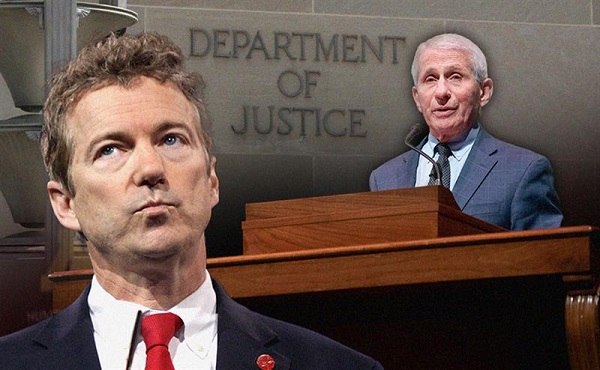
 COVID-192 days ago
COVID-192 days agoSen. Rand Paul: ‘I am officially re-referring Dr. Fauci to the DOJ’
-
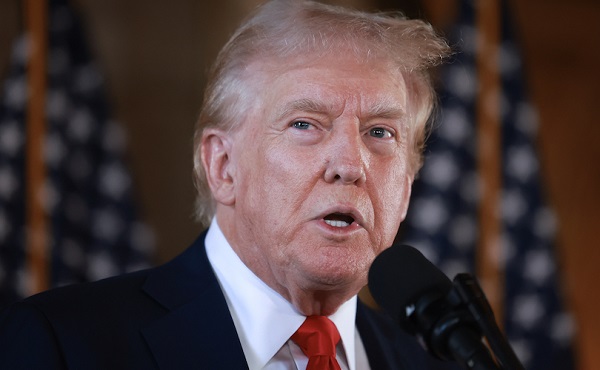
 Education2 days ago
Education2 days agoTrump praises Supreme Court decision to allow dismantling of Department of Education
-
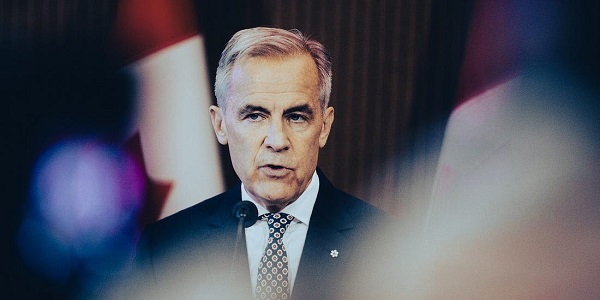
 National2 days ago
National2 days agoDemocracy Watch Blows the Whistle on Carney’s Ethics Sham
-
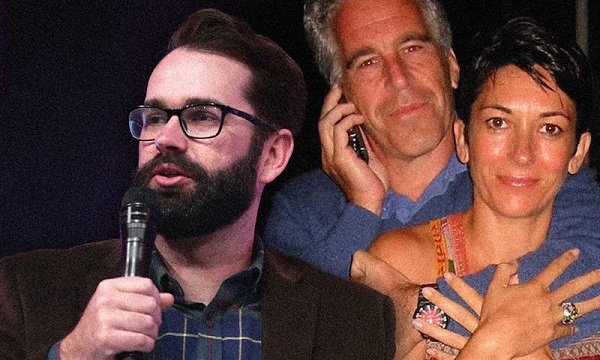
 International2 days ago
International2 days agoMatt Walsh slams Trump administration’s move to bury Epstein sex trafficking scandal
-

 Energy1 day ago
Energy1 day agoIs The Carney Government Making Canadian Energy More “Investible”?
-
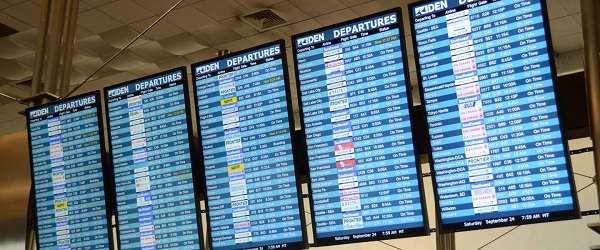
 Business1 day ago
Business1 day agoCompetition Bureau is right—Canada should open up competition in the air
-
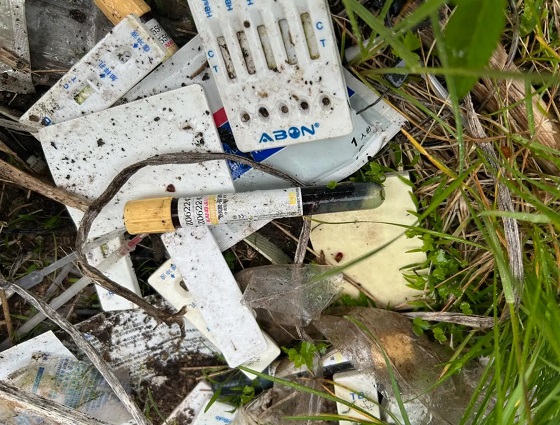
 Immigration1 day ago
Immigration1 day agoUnregulated medical procedures? Price Edward Islanders Want Answers After Finding Biomedical Waste From PRC-Linked Monasteries
-

 Business1 day ago
Business1 day agoDemocracy Watchdog Says PM Carney’s “Ethics Screen” Actually “Hides His Participation” In Conflicted Investments







